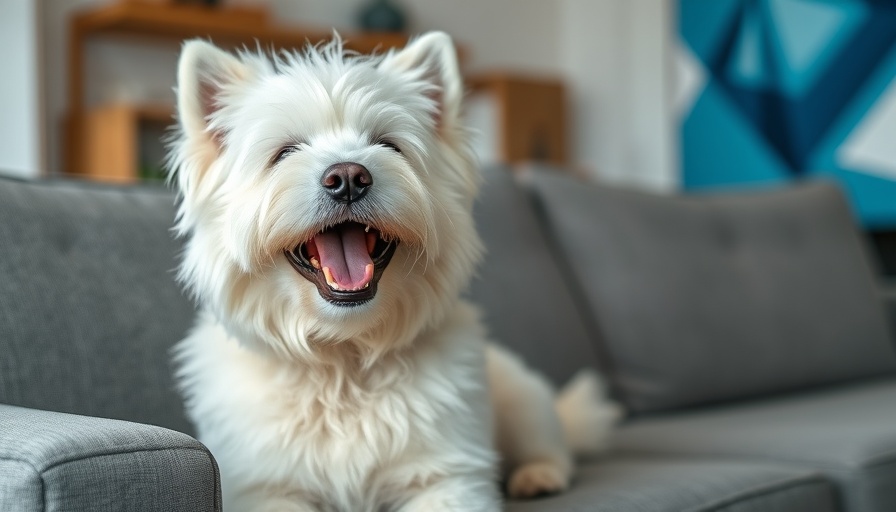
Understanding Nighttime Aggression in Dogs
As a dog owner, witnessing sudden changes in your furry friend's behavior can be unnerving. If your previously gentle dog becomes aggressive at night, you're not alone in this experience. Nighttime aggression can manifest as barking, growling, or even lunging at family members, and understanding the reasons behind this sudden shift is crucial for managing it effectively.
Common Causes of Aggression After Dark
Identifying the root cause of your dog’s nighttime aggression is essential. Here are some common reasons:
- Anxiety Levels Increase: Many dogs feel more anxious during the night due to environmental noises or changes in their surroundings. If your dog is sensitive to sounds, nighttime can feel more chaotic, causing stress that leads to aggressive behavior.
- Seeking Attention: Dogs are social creatures and often crave attention. If your dog feels neglected after a busy day, he might become aggressive to attract your notice, especially at night when you’re winding down.
- Territorial Instincts: Dogs can be territorial, and nighttime might amplify this instinct as they feel the need to protect their space. This can be especially true if new pets or strangers enter the home.
- Pain or Discomfort: Some dogs might experience elevated pain levels at night, which can lead to irritability and aggression. Always rule out medical issues with your vet if this behavior persists.
- Resource Guarding: If your dog feels the need to guard toys, food, or resting spaces, this behavior may become more pronounced after dark when the household quiets down. Ensuring that your dog feels secure about his resources can help mitigate aggression.
The Emotional Context of Aggression
Understanding your dog's emotional state is key to addressing nighttime aggression. Dogs experience emotions similar to humans, such as fear, frustration, or insecurity. During the day, distractions and activities typically keep their minds occupied, but at night, they often dwell on these feelings. Being aware of your dog's triggers can help you manage his responses better.
Actionable Tips for Calming Your Dog
While identifying the causes of nighttime aggression is essential, implementing proactive strategies to manage this behavior is equally important. Here are some actionable tips:
- Create a Safe Space: Ensure your dog has a designated, comfortable area where he can retreat and feel secure, particularly at night.
- Establish a Nighttime Routine: A consistent routine can help your dog feel more comfortable. Consider activities that promote calmness, such as a gentle walk or relaxation exercises before bed.
- Desensitize Environmental Triggers: Gradually expose your dog to the stimuli that cause anxiety during the night, using positive reinforcement techniques to create positive associations with these factors.
- Consult a Professional Trainer: If nighttime aggression persists, seeking help from a dog trainer can provide guidance tailored to your dog's needs. They can help you implement training and socialization techniques to reduce aggressive tendencies.
Long-Term Strategies and Prevention
Prevention is always better than cure. Long-term strategies can help reduce the likelihood of nighttime aggression:
- Daily Engagement: Ensure your dog receives enough physical and mental stimulation during the day to prevent pent-up energy that can result in aggression.
- Socialization: Regular interaction with other dogs and people throughout the day can help your dog become more comfortable and less reactive.
- Regular Vet Checkups: Frequent health checkups can identify potential medical issues before they contribute to behavioral changes.
When to Seek Immediate Help
If your dog's aggression escalates or poses a risk to himself or others, don’t hesitate to contact a veterinarian or dog behavior specialist. Aggression can stem from a variety of issues that require professional evaluation and intervention.
Conclusion
Nighttime aggression in dogs can be troubling, but by understanding its causes and implementing effective strategies, you can help your canine companion feel more secure and calm. Always be proactive about managing behavior and remain patient as you work with your dog to find solutions that enhance his well-being and your peace of mind.
 Add Row
Add Row  Add
Add 


Write A Comment